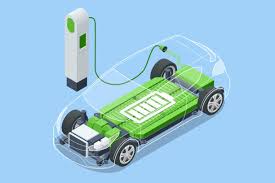This Software Can Make Your Electric Car Battery Charge 30% Faster
New software technology promises to accelerate electric vehicle (EV) battery charging by up to 30%, offering a potential breakthrough in the adoption of electric cars. This advancement comes from innovative algorithms that optimize charging processes, reducing wait times and enhancing user convenience.
How the Technology Works
The software utilizes advanced algorithms to manage the battery’s charging cycles more efficiently. By analyzing real-time data, the system adjusts the charging rate to optimize the battery’s performance and lifespan. This method contrasts with traditional charging systems that often follow a standard, less efficient protocol.
Impact on Electric Vehicle Market
Faster charging times could significantly benefit the EV market, addressing one of the primary concerns of potential buyers: long wait times at charging stations. With quicker charging, EVs become more practical for daily use, potentially increasing their popularity among consumers.
Current Developments and Future Prospects
Several EV manufacturers are already testing this software to evaluate its performance and reliability. If successful, this technology could become a standard feature in future electric cars, driving further innovation in the sector.
External Resources
For more detailed information on electric vehicle technology, visit this comprehensive guide from the U.S. Energy Information Administration. Additionally, an in-depth report by the International Energy Agency provides insights into the global EV market trends.
Original Story at news.google.com
